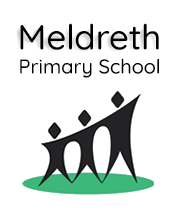At Meldreth Primary School, we actively promote the principle of parents as partners in learning. Research clearly demonstrates that parents' active engagement with their children's school and their learning is the most important long-term influence on academic success and positive behaviour.
We are committed to securing strong family and community links, and there are a number of ways for parents to engage with your child's learning and contribute to their ongoing success.
Key Principles
Education researchers tell us that homework has little impact for primary age pupils, unless it requires children to rehearse and practise their learning. We are also acutely aware of the increasing pressure on children and the need for them to enjoy their childhood.
Leading educationalists are also arguing the case for more creativity in the curriculum to better prepare children for the world of work, especially where it is predicted that many of the jobs that our 5 year olds will start are not yet known!
Research tells us that learning and understanding are deepened through repetition and practice. We believe that reading should be part of a child's daily routine. Key skills such as learning times tables for maths and practice of spelling patterns can also be practised at home. Learning beyond the school, with or without the support of parents, enables pupils to enjoy spending time on an extended task and lets them develop their creativity.
- You are aware of year group learning expectations published on class webpages;
- You support you child with learning which children need to practise and rehearse:
- reading and/or talking about their reading to an adult daily
- learning spelling words linked to age-related expectations;
- learning multiplication tables to increase their fluency so that they can be applied in other areas of maths;
- encouraging children to use mathsseeds, mathletics and purple mash
- You give your child opportunities to learn across the curriculum and be creative through our enrichment activities.
Comment ideas for your child's reading record
- Read familiar words independently.
- Able to predict what happens next in the text.
- Showed good understanding of the text
- Read with good expression.
- Worked out new words independently.
- Worked out new words by sounding them out.
- Discussed the story and characters well.
- Used good spoken expression
- Enjoyed reading this book a lot
- Self-corrected own errors independently
- Used the picture cues and the first sound of a word to work out words
- Read with fluency and expression
- Struggled to concentrate.
- He/she made a number of errors because he/she was not looking carefully enough Would not read tonight
- Self-corrected his/her own errors
- Found this book too hard to read
- Able to read this book with lots of help
- Struggled to work out a lot of the vocabulary
- Created tension as he did not want to read
- Did not understand what she has read
